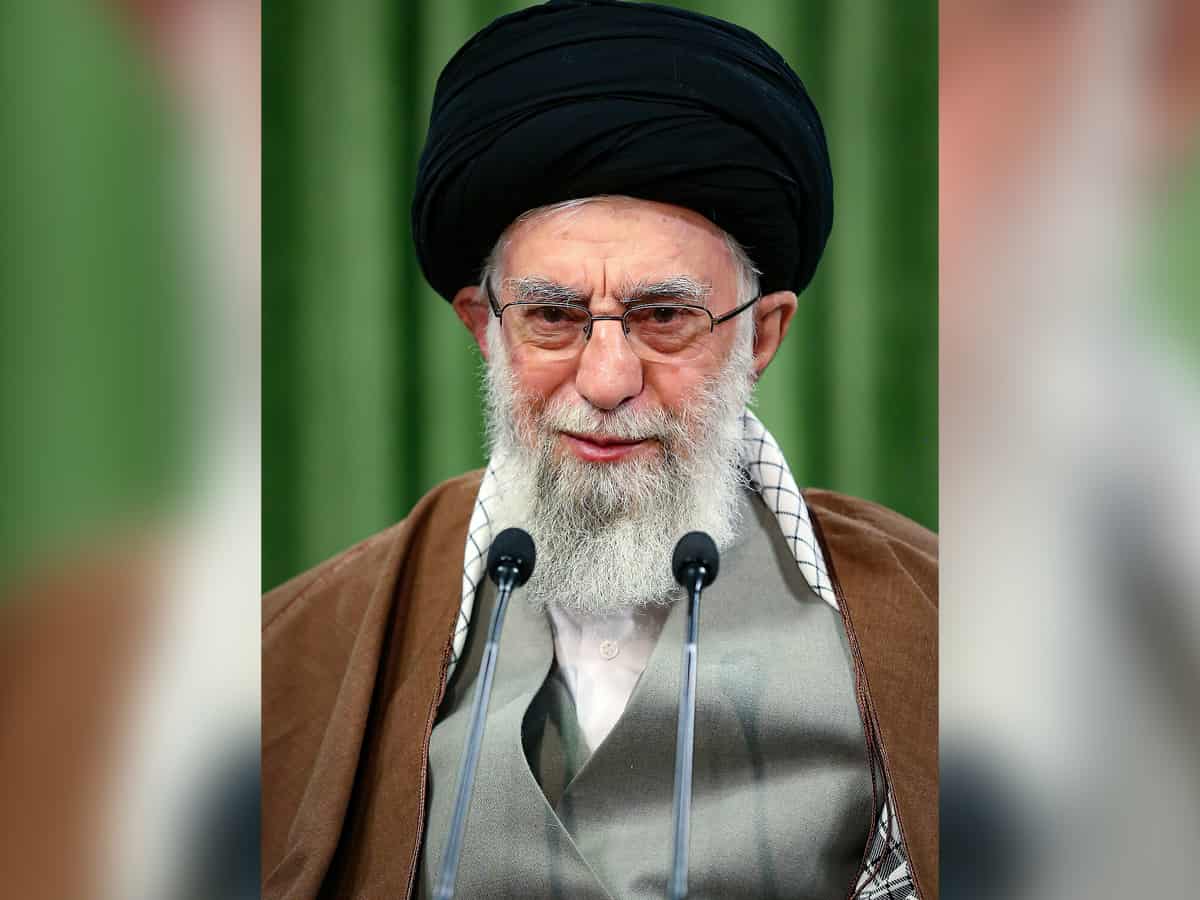
Tehran: Iran’s Supreme Leader Ayatollah Ali Khamenei said that the country is looking for “peaceful” use of nuclear energy, and “not for nuclear weapons”.
“The reason for the enemy’s emphasis on the Iranian nuclear issue and the imposition of oppressive sanctions, despite their knowledge of our peaceful use (of nuclear energy), is to prevent the country’s scientific progress aimed to meet Iran’s future needs,” Xinhua news agency quoted the Supreme Leader as saying on Thursday.
Khamenei also said that the enemy has targeted the public opinion, especially the minds of the Iranian youth, by spending billions of dollars and with various plans in their think tanks to discourage them from the ideals of the Islamic revolution.
He described “economic pressure” and “media operations” as two main apparatus of the “arrogance” to separate people from the Islamic establishment, saying that spreading “lies and slandering the basis of the revolution and the institutions that help the progress of the revolution are the methods used in their media operations”.
Meanwhile, Khamenei stressed the need to deal with economic and sanction pressures by relying on internal capacities in the country.
Regarding the ongoing nuclear negotiations in the Austrian capital of Vienna, he noted that “diplomacy is also good, just as our good, revolutionary brothers are working to persuade the other side to lift sanctions”.
Criticizing some acts of the former Iranian negotiating team in signing the 2015 nuclear deal, formally known as the Joint Comprehensive Plan of Action (JCPOA), he said that “in (signing) the JCPOA, my view was that we should consider the points that would not cause problems later, but some of these points were ignored and problems that we see (today) arose”.
The Iranian leader did not elaborate on his “points” needed to be considered in the clinch of the JCPOA, but he had insisted that the US is “unreliable” about its vows, and the Iranian negotiators should have been cognizant of this point.
Iran signed the JCPOA with world powers in July 2015.
However, former US President Donald Trump pulled out of the agreement in May 2018 and reimposed unilateral sanctions on Iran, which prompted the latter to drop some of its nuclear commitments one year later and advance its halted nuclear programs.
Since April 2021, eight rounds of talks have been held in Austria’s capital Vienna between Iran and the remaining JCPOA parties, namely the UK, China, France, Russia plus Germany, with the United States indirectly involved in the talks, to revive the landmark deal.
Iran’s chief nuclear negotiator Ali Bagheri Kani said on Wednesday that the JCPOA countries are now closer to an agreement than any time before.
He wrote on Twitter that “after weeks of intensive talks, we are closer than ever to an agreement; nothing is agreed until everything is agreed, though”.

